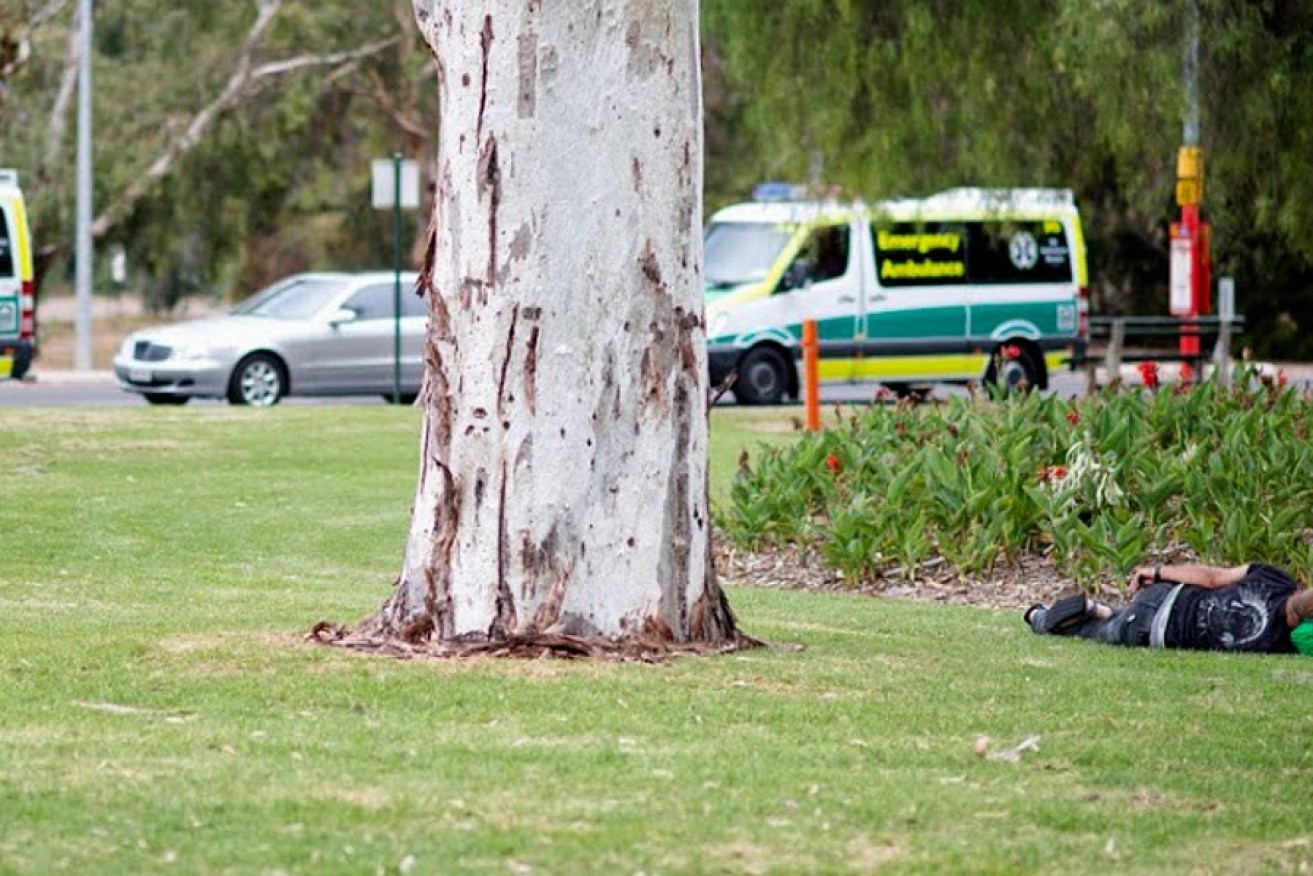Pandemic reveals “significant” challenges to housing homeless
Over 500 South Australian rough sleepers have been accommodated in motels or hotels during the COVID-19 pandemic, but a quarter of those were evicted or left of their own accord, new data from the SA Housing Authority reveals.

Photo: Nat Rogers/InDaily
As of July 10, 542 South Australians experiencing homelessness were put up in taxpayer-funded city hotels and motels due to concerns about limiting the spread of coronavirus.
SA Housing Authority chief executive Michael Buchan told a parliamentary committee hearing on June 29 that approximately 140 of those were later evicted due to problem behaviour, or voluntarily chose to leave.
An authority spokesperson told InDaily this morning “the vast majority” of those people had been respectful, with only a “small number” evicted due to property damage or antisocial behaviour.
There are still 117 people staying in hotels and motels, while a further 158 households now live in secure private or public housing.
The authority says all people identified as being homeless during the COVID-19 pandemic have been offered assistance finding housing.
It follows a State Government pledge in March to “immediately” accommodate people experiencing homelessness in hotels and motels to help stop the spread of COVID-19, with that decision since costing the state over $3 million.
All up, the State Government committed $8.2 million to respond to homelessness during the coronavirus pandemic.
SA Housing Authority chief executive Michael Buchan told a parliamentary committee hearing last month that during the pandemic, the authority had “a real focus on not asking questions, just grabbing people and providing them with the opportunity to move into housing”.
But he said finding permanent accommodation would would not be possible for a “significant” number of people.
He said some rough sleepers who were identified as being homeless during the COVID-19 pandemic were visiting Adelaide from remote communities, “so they will ultimately go back to their home”.
Of those who were put up in motels but later left, Buchan said some did not choose to engage with the SA Housing Authority or provide their name.
“They don’t want to engage with us, they don’t want to talk to us, they won’t give us their name, for instance—something as simple as that—or have behaved in a manner which is almost impossible to engage with more broadly,” he said.
“There is a core there where, for whatever reason, whether it be mental health, whether it be drugs and alcohol, whether it be broader issues that are so complex—from trauma, from a whole raft of other things—it is very, very difficult for them to engage with authority, with state government, local, any of those, even churches and the rest of it.
“They are very, very difficult from a policy perspective to work through to engage with.”
The data has prompted the SA Housing Authority to request new funding and policy changes to ensure more services and “specialised facilities” are available to assist people when they transition into housing.
“When we sat back and looked at a lot of the homelessness data, what we have seen in homelessness within South Australia has been potentially a reduction in the number of people but an increase in the amount of time they are using homelessness services,” Buchan said.
“They are cycling in and out, cycling in and out, and failing through the system.
“We really do need to stop and step back and ask, how do our homelessness system and services actually exit people from homelessness and not just focus on a momentary element of support for individuals?”
Human Services Minister Michelle Lensink told InDaily the Government was considering “a range of new options” to support people’s housing needs.
“(We) remain committed to supporting South Australians into longer-term housing options following their stay in motels,” she said.
“COVID-19 highlights more than ever we need to ensure the system is working well, so that more South Australians can get long-term, safe and stable accommodation – and keep it.
“Ensuring our most vulnerable South Australians are safe, healthy and adequately supported has been a Marshall Liberal Government priority at this time.”
Adelaide Zero Project co-chair Louise Miller Frost said over 75 per cent of people who are experiencing homelessness are also experiencing health, safety, relationship or financial challenges.
“This data calls upon us to take a multi-sector response that includes government, health, homelessness and housing services,” she said.
“The longer someone experiences homelessness, the greater the risk to the individual – and cost to the community.
“We must ensure these people can access long-term housing quickly, and then receive the right type and duration of support to meet their individual needs.”
Want to comment?
Send us an email, making it clear which story you’re commenting on and including your full name (required for publication) and phone number (only for verification purposes). Please put “Reader views” in the subject.
We’ll publish the best comments in a regular “Reader Views” post. Your comments can be brief, or we can accept up to 350 words, or thereabouts.




